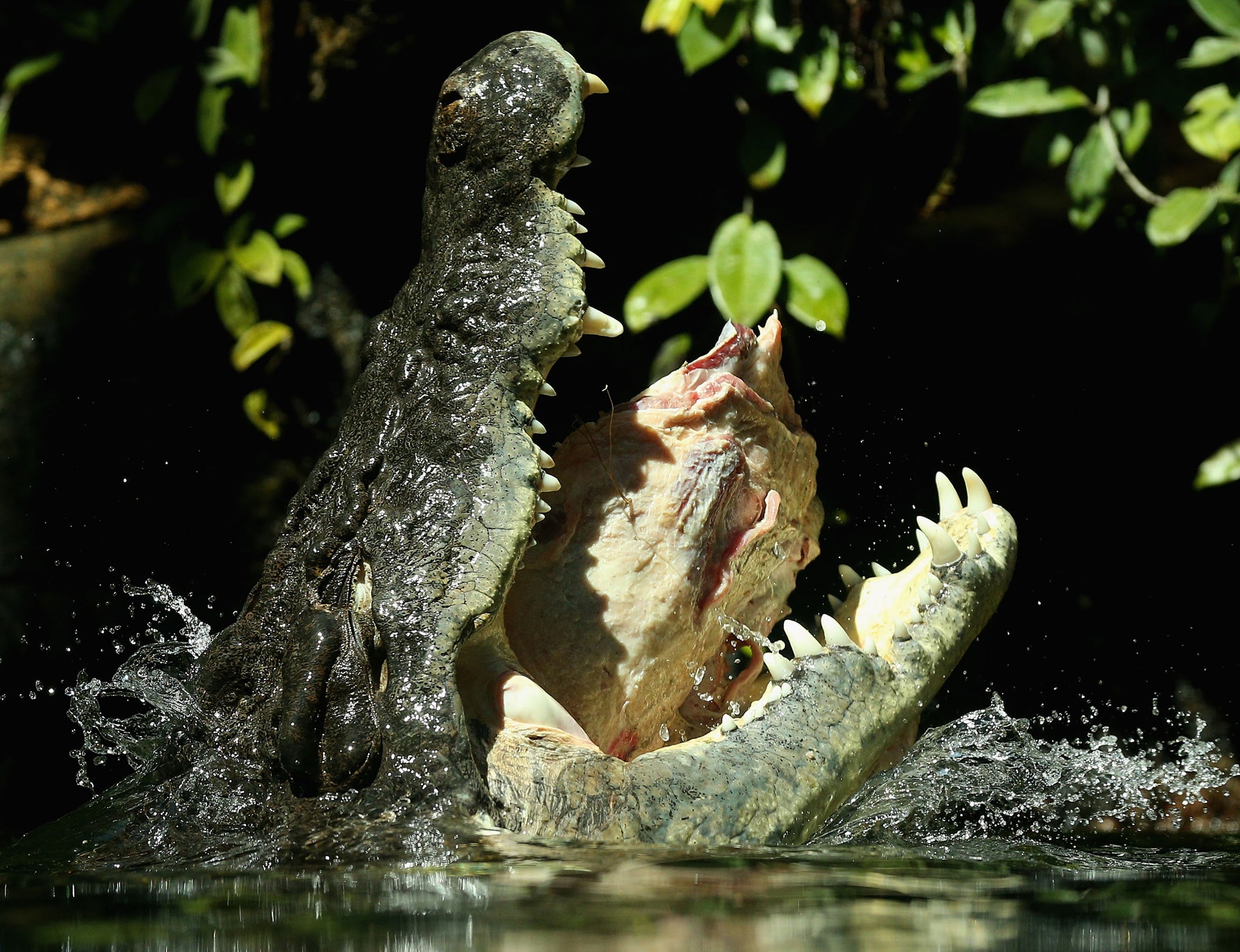Number of crocodiles in Australian waters soars

A record haul of man-eating saltwater crocodiles was removed from waterways in the "Top End" of Australia last year, confirming that numbers of the feared reptiles are ballooning.
Wildlife rangers captured 314 of the estuarine crocodiles – or "salties" – in 2012, the equivalent of more than six a week in the northernmost section of the Northern Territory. Of those, 215 were fished out of Darwin Harbour, in the centre of a city that is home to nearly 130,000 people. The largest was a 16ft male, caught in a swamp in outer Darwin back in April.
The figures, which emerged yesterday, were released by the Northern Territory Parks and Wildlife Commission a month after a 12-year-old boy was killed by a crocodile near Port Bradshaw, 400 miles east of Darwin. Two weeks earlier, human remains were found in a crocodile's stomach after a seven-year-old girl was attacked while swimming in a waterhole.
Hunted almost to extinction last century, saltwater crocodiles have been a protected species since 1971 and since then their numbers have soared. There are now believed to be about 150,000 roaming the Top End. Despite their name, they are found in rivers and creeks miles from the sea.
Under a management programme, wildlife rangers trap creatures considered to pose a particular risk to humans, usually because they are close to populated areas. The two fatal attacks sparked renewed calls for the crocodiles to be selectively culled.
Join our commenting forum
Join thought-provoking conversations, follow other Independent readers and see their replies
Comments